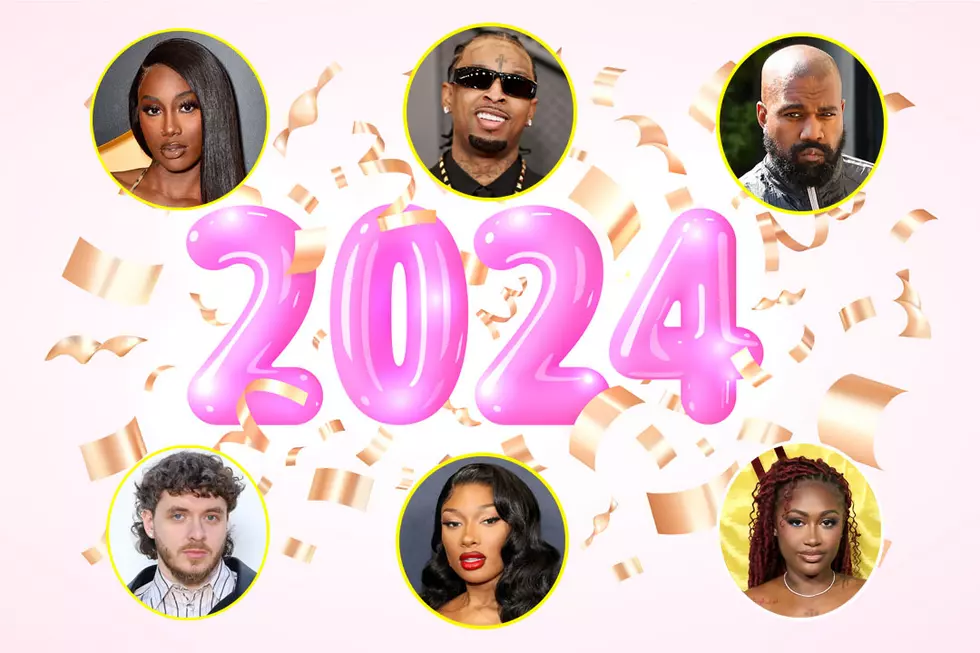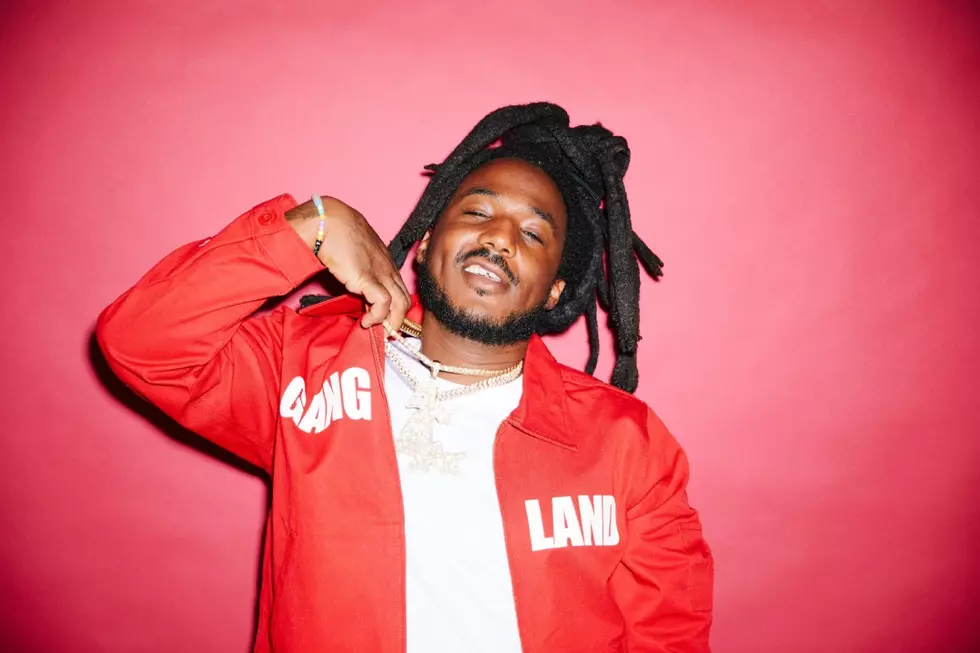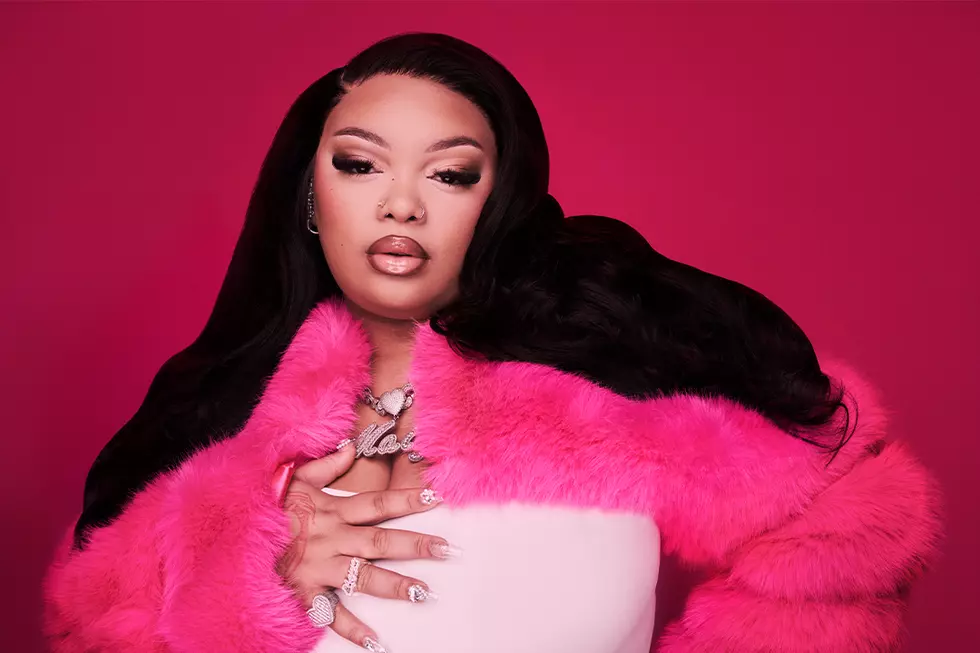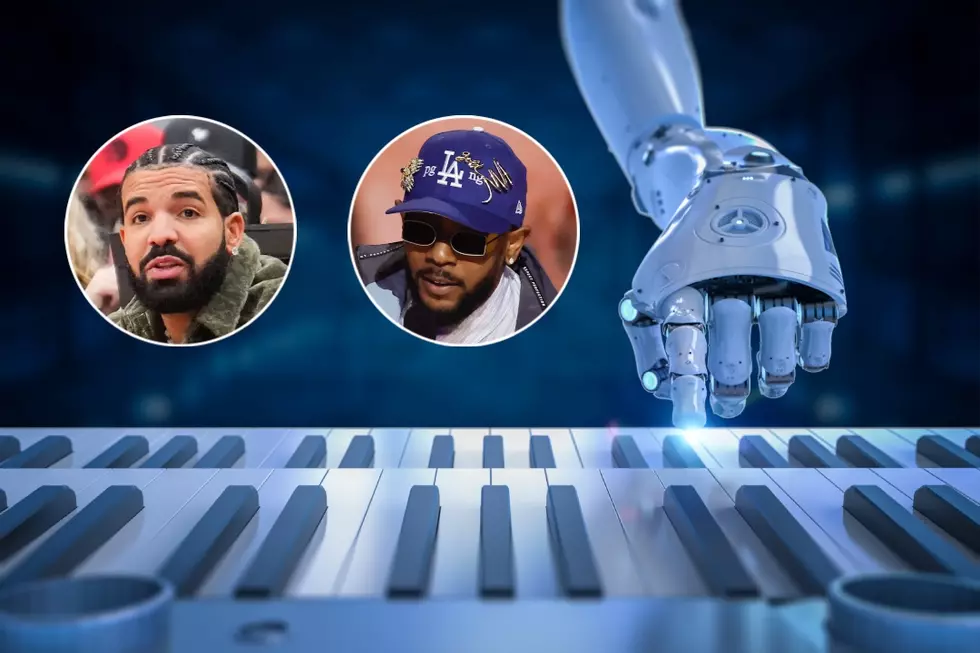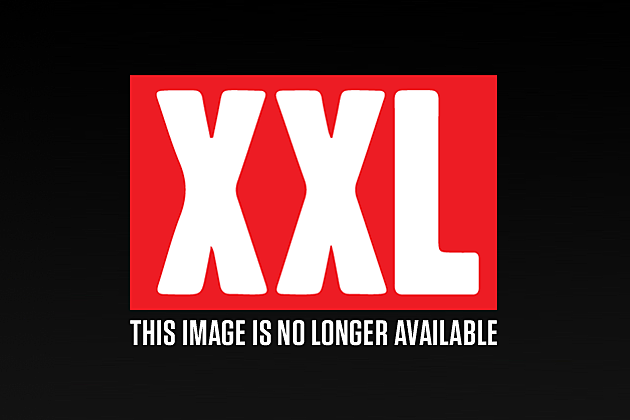
Pharrell Shares Advice For Freshmen Producers
Pharrell Williams' influence on the past two decades of music almost goes without saying, but we'll re-state it here—if you're looking for a hit, Skateboard P is a one-stop shop to find the tools to get you to the top of the charts. Throughout the years, those tools have often come in the form of bouncy, futuristic space-funk beats that have come to define a certain type of hip-hop—Clipse's "Grindin'," Jay Z's "I Just Wanna Love U (Give It 2 Me)" and Snoop Dogg's "Drop It Like It's Hot" are three major examples—but he's also taken his singing and hook-making talents to the No. 1 spot, particularly recently.
In the past 12 months alone, Pharrell has had three songs—Robin Thicke's "Blurred Lines" alongside T.I., Daft Punk's "Get Lucky" and his own "Happy"—reach the top two spots on the Billboard Hot 100, with two of those—"Blurred Lines" and "Happy"—enjoying extended runs at the No. 1 spot. But things haven't always been the rosiest for one of the hottest producers in the game; it was a slow start for Pharrell, coming from Virginia alongside his Neptunes partner-in-crime Chad Hugo, but the two steadily built their influence in the game until their talent and ear for beats and hits were flatly undeniable.
With his sophomore album, G I R L, debuting in the No. 2 slot on the Billboard 200 in March, as well as performances at the Oscars and four Grammys—including Record Of The Year for "Get Lucky"—at the 2014 awards in January, Pharrell is showing no signs of cooling off. XXL spoke to the super producer about breaking into the music industry, maintaining relationships over the years, and any advice he has for new producers trying to break into the industry. Lose yourself to dance. —Dan Rys
XXL: What advice would you give to producers coming through today who are looking for that initial breakthrough?
Pharrell: Bet on yourself. Bet on your tastes. Bet on your identity, and appreciate the fact that the Master made you different and that what makes you different is what makes you special. It's the reason why every comic book superhero works. It's the reason why those guys have a job and an occupation. Because that what makes you different, makes you special. And I hate to take it there, but, you know, look at Batman. His dark side is what makes him special. Or Superman, for that matter. I feel like The Dark Knight is the perfect example, only because Hans [Zimmer] worked on the music, and I just thought it was so phenomenal.
But my point to you is that, you gotta believe in that difference. Look at Cee-Lo. It's his belief in himself, in him being different, that's made him stand out, sell more records than everyone else and become this larger-than-life star with this music that just moves the planet. Or Andre 3000. Or Kanye West. Or think about any of the other artists that are out there—go into the pop realm and you'll see. That's what makes them special.
You've been able to keep a lot of collaborative relationships for a long time throughout your career. How important for you as a producer is it to maintain those relationships over the years?
Everything you do needs to have a purpose. You don't do things just for the aesthetic cool, because then as quick as you got it, it will no longer matter to you. You want to maintain relationships with people that you care about. If it's a matter of making music with people because they're great but you don't like them as people, that's cool, too. You don't have to like everybody.
But I think you maintain relationships because they're worth maintaining and the byproduct of that will be great music, because there's something pure there. There's a pure connection. There's a pure affinity and appreciation. When it's fake, most of the time it's gonna come out fake. In other words, the microphone records everything, not just the sound. It records the emotion. Or the lack thereof.
You've been able to expand your personal brand across a bunch of different fields. What made you want to do everything?
I think more than anything else, I just entertain opportunities that were given to me if they made sense to me. If I had a genuine interest in it, then I would also need to be doing it with someone who is a master at it so I can learn. And that, to me, is the object of collaborating. That's the objective there.
Is there anything you wish you could go back and tell yourself at the beginning of your career?
You know what? The old answer would have been yes, but the new answer is no, because I know better now. I know that had I not made all the mistakes I made in the past, and my misgivings, and my imperfections, I would've never gotten any lessons out of life. I needed these lessons to get to where I am now.
And I say the same thing to everyone else—don't regret anything, because there are no mistakes, no coincidences or accidents. We're supposed to learn from everything we do. And it's for the betterment, right? But when you think about music, it's like, every creative step that we took landed us to this place. And you look at the succession of your body of work, and you see it morphing as you look through the slides of time. You see it morphing and turning into where you are now.
And what have I learned from that? I learned that I just need to be open. Because you never know what kind of music you're gonna make next. You never know what you're gonna wanna say and what you're gonna wanna talk about. You never know how much more you can put into your music, unless you're open. You'll never know those things. You'll never know your fullest potential if you're not open to someone pointing you in the right direction.
Previously: iStandard Selects The XXL 2014 Freshmen Producers
Check Out All Our Coverage Of The XXL Freshmen 2014 Class
Pharrell Named One Of TIME’s ‘Most Influential People’ of 2014
Pharrell Is Having A Huge Year
Review: Pharrell's G I R L
Interview: Pharrell Has Found His Happy Place In The Mainstream
More From XXL


